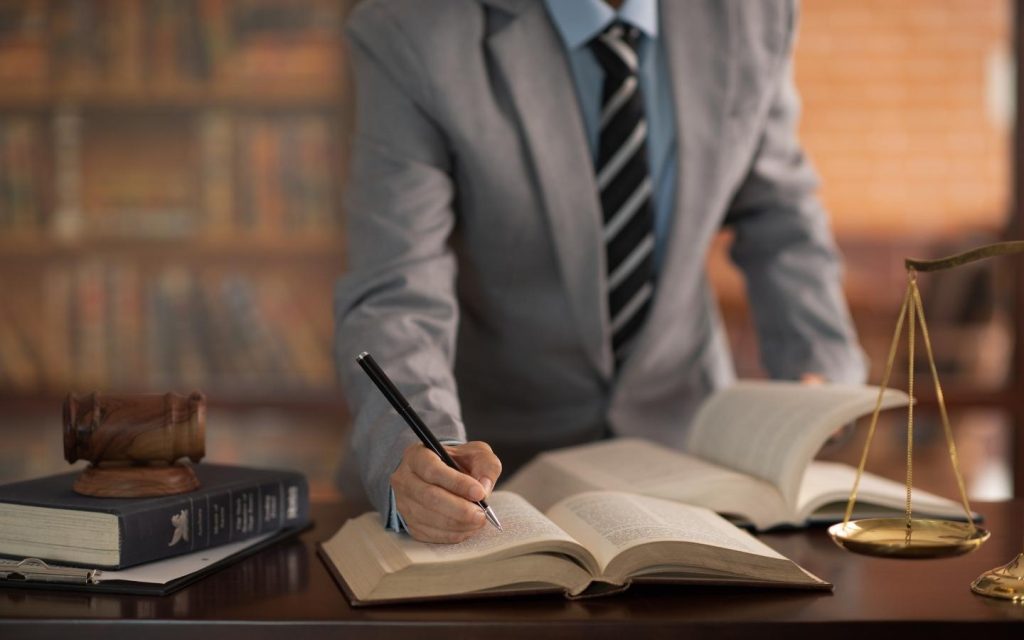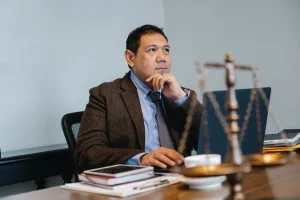Fighting for Justice
The criminal justice system is an integral part of society, tasked with maintaining law and order and ensuring that justice is served. Within this system, criminal attorneys play a critical role in defending the rights of the accused and ensuring that they receive a fair trial. In this article, we will explore the importance of criminal attorneys in the legal system, including their responsibilities, strategies and tactics, and the impact they have on society.
Table of Contents
Toggle
The Role of a Criminal Attorney:
A criminal attorney is a legal professional who represents clients accused of criminal offenses. Their primary responsibility is to defend their clients’ rights, ensuring that they receive a fair trial and are not subject to unjust or excessive punishment. Criminal attorneys work to protect the constitutional rights of their clients, including the right to remain silent, the right to legal counsel, and the right to a fair trial.
Responsibilities of a Criminal Attorney:
The responsibilities of a criminal attorney include:
Investigating the Case: The attorney will investigate the case to gather evidence, interview witnesses, and examine the facts of the case.
Developing a Defense Strategy: The attorney will develop a defense strategy based on the evidence and facts of the case, including arguments that can be made to mitigate the severity of the charges.
Negotiating with Prosecutors: The attorney may negotiate with prosecutors to reach a plea agreement, reducing the charges or sentence in exchange for a guilty plea.
Representing the Client in Court: The attorney will represent the client in court, presenting evidence, questioning witnesses, and making arguments to the judge or jury.
Protecting the Client’s Rights: The attorney will ensure that the client’s constitutional rights are protected throughout the legal process.
Strategies and Tactics of a Criminal Attorney:
Criminal attorneys use a variety of strategies and tactics to defend their clients, including:
Investigating the Case: Attorneys will conduct a thorough investigation of the case, examining the evidence, interviewing witnesses, and identifying any weaknesses in the prosecution’s case.
Building a Defense: Attorneys will develop a defense strategy that takes into account the evidence and facts of the case, including any mitigating factors that could reduce the severity of the charges.
Negotiating with Prosecutors: Attorneys may negotiate with prosecutors to reach a plea agreement, reducing the charges or sentence in exchange for a guilty plea.
Cross-Examining Witnesses: Attorneys will cross-examine prosecution witnesses to expose any inconsistencies or weaknesses in their testimony.
Presenting Evidence: Attorneys will present evidence that supports the defense’s case, including witness testimony, expert opinions, and physical evidence.
Making Arguments: Attorneys will make arguments to the judge or jury, persuading them that the prosecution has not proven the defendant’s guilt beyond a reasonable doubt.
Impact of Criminal Attorneys on Society:
Criminal attorneys play a vital role in society, protecting the rights of the accused and ensuring that justice is served. Without criminal attorneys, the legal system would be unbalanced, with prosecutors having more power and influence than defendants. Criminal attorneys help to level the playing field, ensuring that everyone has access to legal representation and that the legal process is fair and impartial.
The table below provides data on the impact of criminal attorneys on society:
| Impact of Criminal Attorneys | Data |
|---|---|
| Access to Justice | Criminal attorneys ensure that everyone has access to legal representation, regardless of their financial resources or social status. |
| Fair Legal Process | Criminal attorneys work to ensure that the legal process is fair and impartial, protecting the constitutional rights of their clients. |
| Reduced Sentences | Criminal attorneys may negotiate plea agreements, reducing the charges or sentence in exchange for a guilty plea. |
| Increased Accountability | Criminal attorneys hold the prosecution accountable, ensuring that they meet their burden of proof and that they do not violate the defendant’s constitutional rights. This helps to prevent wrongful convictions and ensures that only the guilty are punished. |
Case Studies:
To better understand the importance of criminal attorneys in the legal system, let’s examine a few case studies.
The O.J. Simpson Trial:
The O.J. Simpson trial is one of the most famous criminal cases in modern history. In 1995, O.J. Simpson, a former football star, was accused of murdering his ex-wife, Nicole Brown Simpson, and her friend, Ron Goldman. Simpson’s defense team, led by famous criminal attorney Johnnie Cochran, mounted a vigorous defense, arguing that the evidence against Simpson was circumstantial and that the LAPD had mishandled the case. After a highly publicized trial, Simpson was acquitted of the murders, with Cochran famously stating, “If it doesn’t fit, you must acquit.” The O.J. Simpson trial illustrates the importance of criminal attorneys in ensuring that defendants receive a fair trial and that the prosecution meets its burden of proof.
The Central Park Five:
In 1989, five teenagers were accused of raping a woman in Central Park in New York City. The teenagers, who were all black or Latino, were interrogated for hours without legal counsel and eventually confessed to the crime. They were convicted and sentenced to prison, despite the lack of physical evidence connecting them to the crime. However, in 2002, DNA evidence proved that another man had committed the crime, and the convictions of the Central Park Five were vacated. The case illustrates the importance of criminal attorneys in protecting the constitutional rights of their clients and ensuring that the legal process is fair and impartial.
Table: Roles and Responsibilities of a Criminal Attorney
| Role | Responsibilities |
|---|---|
| Investigator | Conducts an investigation into the case, collects evidence, and interviews witnesses |
| Strategist | Develops a defense strategy and determines the best course of action for the client |
| Negotiator | Negotiates with prosecutors for a reduced sentence or a plea bargain |
| Advocate | Represents the client in court, presents evidence, cross-examines witnesses, and makes arguments |
| Protector | Protects the client’s rights, ensuring that they are not coerced into making statements or confessing |
| Advisor | Advises the client on the potential consequences of the case, the legal process, and the available options |
| Liaison | Communicates with the court, the prosecutor’s office, and other relevant parties on behalf of the client |
Conclusion
Criminal attorneys play a crucial role in the legal system, defending the rights of the accused and ensuring that justice is served. They are responsible for investigating the case, developing a defense strategy, negotiating with prosecutors, representing the client in court, and protecting the client’s rights. Criminal attorneys use a variety of strategies and tactics, including investigating the case, building a defense, negotiating with prosecutors, cross-examining witnesses, presenting evidence, and making arguments. Criminal attorneys have a significant impact on society, ensuring access to justice, a fair legal process, reduced sentences, and increased accountability. The O.J. Simpson trial and the Central Park Five case illustrate the importance of criminal attorneys in ensuring that defendants receive a fair trial and that the legal process is fair and impartial.




